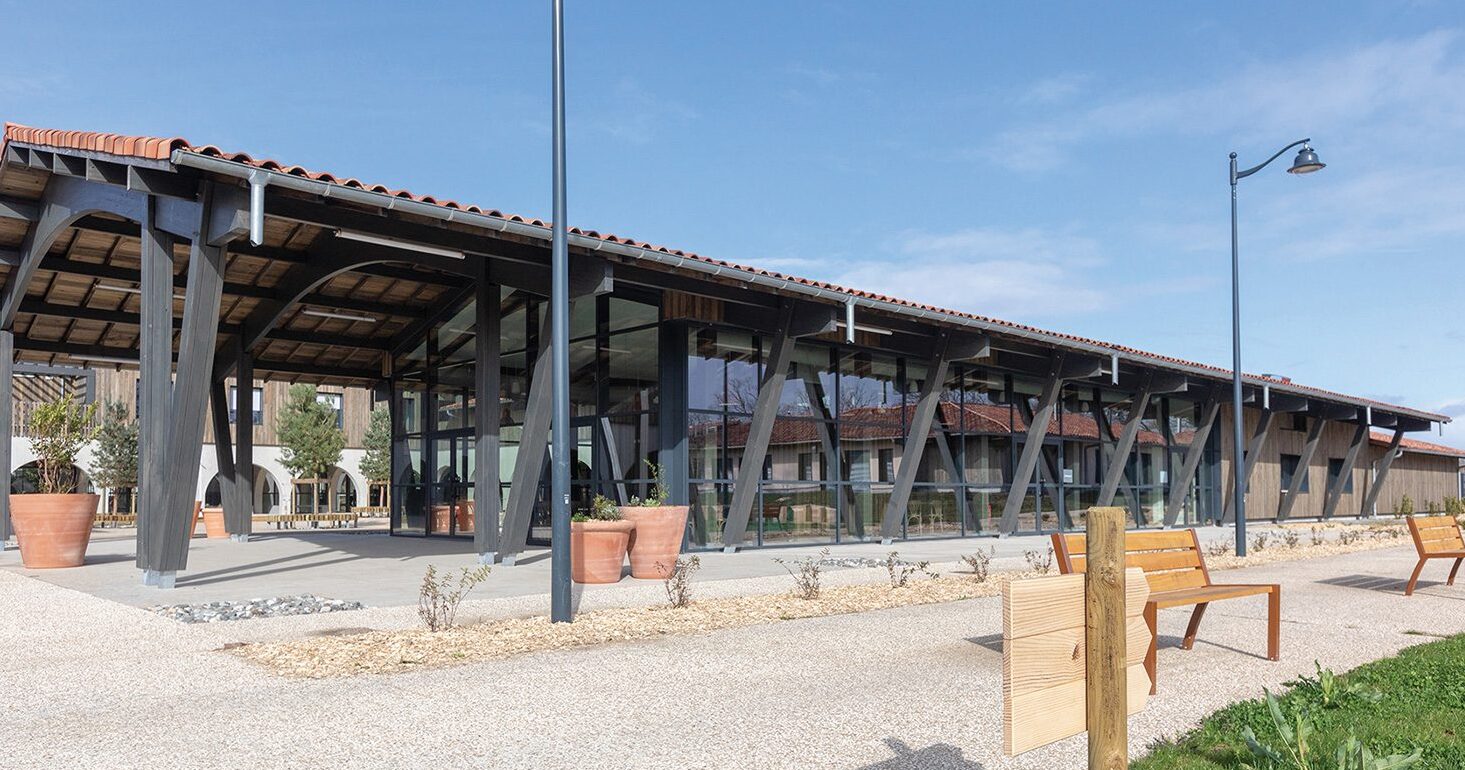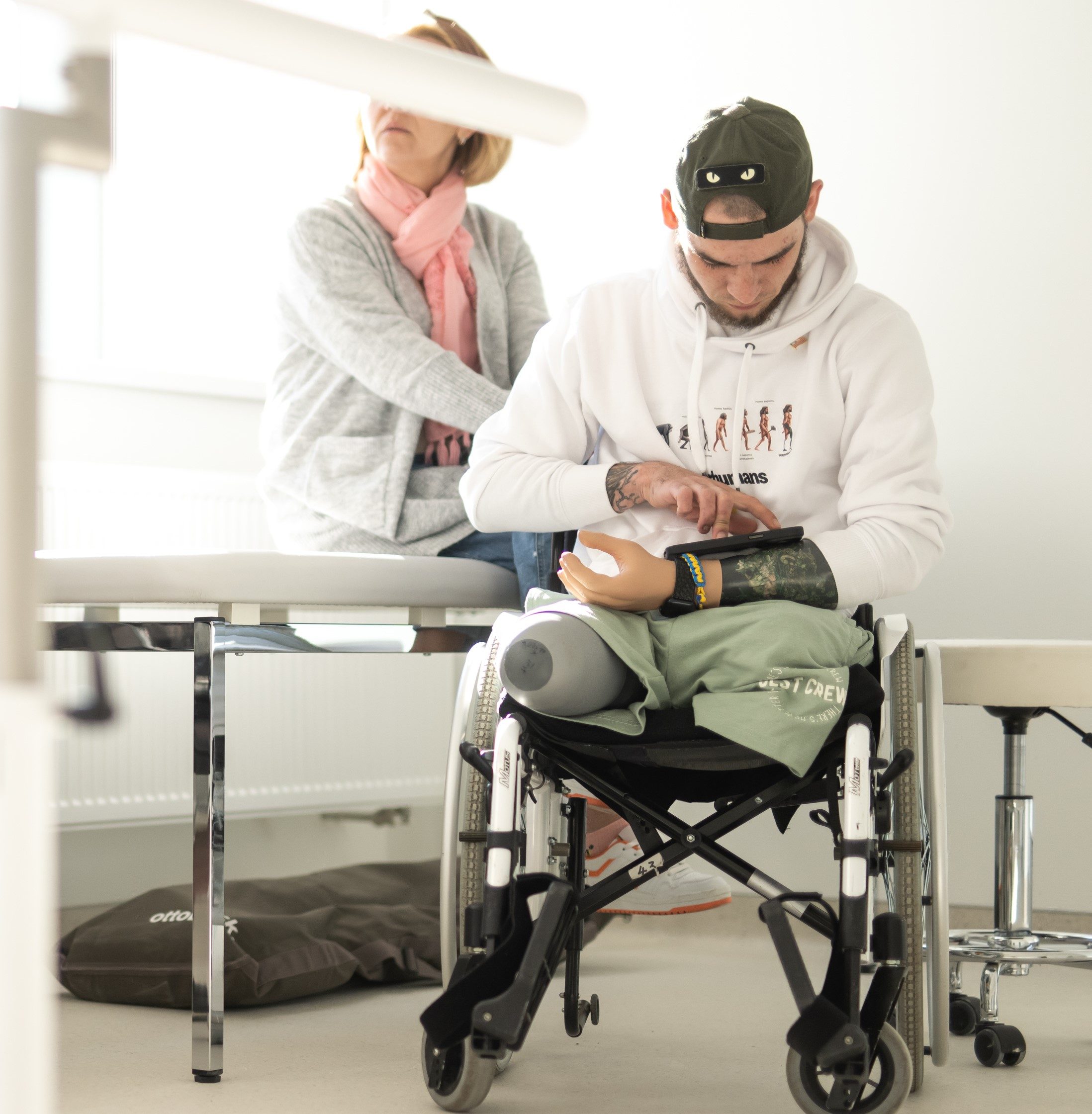A village with a difference
Innovation in medical care isn’t all about clinical trials and pharmaceutical solutions – one village in France is rewriting the rulebook on dementia care
In a quiet corner of France, a unique experiment is taking place that could help revolutionise healthcare systems.
The World Health Organisation estimates that more than 55 million people worldwide are living with dementia. Dementia and Alzheimer’s disease – the most common cause of dementia – result in more than 65,000 deaths in the UK each year alone1, making it the most common cause of death. As the population ages, patient numbers are expected to balloon, meaning that finding effective and dignified ways of caring for people with Alzheimer’s will become increasingly urgent.
That challenge is being met head-on at Village Landais Henri Emmanuelli. Here in Dax, a spa town of just 20,000 people in the Landes local government area of south-west France, an entire community has been built around one of society’s most stigmatised and least understood conditions. It’s where people living with Alzheimer’s disease are being supported rather than institutionalised, where the condition itself is accepted and normalised.
Close to home
The village – an architect-designed township set across five hectares – is home to 120 residents. Four ‘neighbourhoods’ comprising a total of 16 houses are set around a bastide – or town square – that mimics life outside the village. There’s a brasserie, a grocery store and a hairdressing salon; there’s also a vegetable garden and even two village donkeys.
Village Landais is modelled loosely on Hogeweyk, a Dutch village that was one of the earliest ‘disruptors’ in dementia care. While the villages seek to mirror ‘normal’ life, adaptations have been made, such as the use of sensory devices to help residents navigate physical and cognitive challenges. Above all, efforts have been made to remove any semblance of institutionalisation. While the village is enclosed, there is little to suggest it’s a gated or locked environment. Villagers are free to participate in everyday activities, and volunteers from the Dax community are regular visitors, as are music and school groups, who use communal facilities such as the public library or the auditorium.
Crucially, medical staff wear street clothes. “We just think about the village as a true village,” says Mathilde Charon-Burnel, who oversees social and medico-social projects for the Landes local government area. “The care we provide is home care. It’s not any different to home care we would provide elsewhere, but it’s inside a secure, safe area. When you think about a [care] facility, it’s a building or a hospital before anything else, but it can also be a home, so our doctors and nurses deal with it as if they are visiting someone at home.”
Treatment plans are personalised – some patients are participating in clinical trials of medicines that may one day prove to slow down the progression of Alzheimer’s, details Mathilde, but the general ethos is about safeguarding the right of villagers to choose their own treatment pathways.
While the village has residents of all ages, it reserves 10 places specifically for those living with early onset dementia. “Inside the village, people can be free and use their free will as much as possible,” says Mathilde. “That means a lot for someone who’s 45 years old. In society, we are used to someone who’s 80 or 90 losing their abilities. If you’re 45 or 50, you’re supposed to be still living your life, so it really means something that this village allows people to be free.”
Research and study
Life here would be relatively idyllic for a care home setting if the shadow of dementia wasn’t so vast. It’s this reality that moves the village beyond a care environment and into the realm of scientific research. Village Landais is, in fact, also one of France’s most progressive research institutes.
While researchers worldwide work on pharmaceutical solutions to help treat and – hopefully – one day cure Alzheimer’s, the science here focuses on non-medicinal management. The village’s scientific committee reviews research requests and decides which projects may benefit from access to the community’s facilities – and to patients. For example, at the time of writing, there was research being undertaken into table tennis as a form of therapy for people with Alzheimer’s.
None of this comes without a price tag and there is little doubt that a project of this magnitude was able to get off the ground due to the political clout of its namesake. Henri Emmanuelli was a former president of the French National Assembly and a long-serving president of the Landes local government. Opened in 2020, the village cost €28.8 million in taxpayer money and loans to build. Residents’ fees cover around a quarter of the €8 million in annual operating costs, but the state makes up the shortfall. While the numbers may not immediately stack up on paper, there are other factors at play – namely the longer-term savings.
“Part of our research is exactly this,” comments Mathilde. “OK, so we have to put more money in at first, but is it a gain for the country?” Researchers track each patient’s physical and cognitive health, looking at, for example, how village life may be reducing comorbidities such as anxiety and depression – and therefore also reducing pressure on the wider health system. Mathilde says there may also be reductions compared to aged care homes and other Alzheimer’s units in the need for off-site hospitalisations resulting from behavioural issues.
In addition, care is provided on site right through to end-of-life, again removing the cost of external resources. “Even during the Covid-19 pandemic, nearly everyone stayed,” says Mathilde. “If they were sick, they never left the facility. It’s their home and people want to stay at home until the end of their lives. This is how the project was designed from the beginning.” The cost to families and national productivity losses resulting from dementia care are other areas ripe for study.
Research will continue until 2027 to study the model. “We have to prove the benefits of the care we provide here, but also its economic and other positive impacts for the country, so that we can change our way of dealing with diseases like this,” explains Mathilde, adding that there is already evidence that the village has had a positive impact locally in terms of the way the broader community views people living with Alzheimer’s.
If the results continue to be positive, there is every indication that the ‘Alzheimer’s Village’ model could be rolled out across France – and have a significant impact on how dementia care is viewed in other countries, including the UK.
FOOTNOTES
© Dialogue Content Marketing Ltd 2025.
This article was taken from the November 2024 edition of FORTIS magazine.
FORTIS magazine is a Health Spaces Limited publication. Opinions expressed in FORTIS magazine are not necessarily those of Health Spaces Limited or Dialogue Content Marketing Ltd. Material contained in this publication may not be reproduced, in whole or in part, without prior permission of the publishers. No responsibility can be taken on behalf of advertisements printed in the magazine.
FORTIS magazine – read more
This article was written for the November 2024 edition of FORTIS magazine; a forum for the NHS to share ideas, innovations and case studies. To read the publication in full and access digital copies, visit FORTIS magazine. FORTIS magazine is free for NHS change-makers and leaders and is available as a print or digital copy. FORTIS magazine is managed and owned by Health Spaces Ltd.




